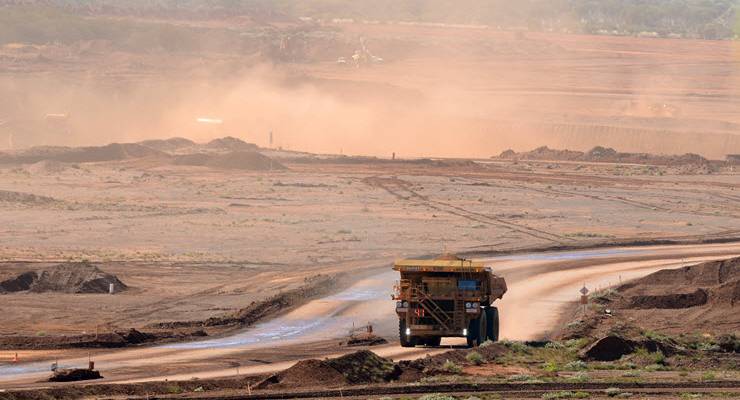
When I was a 19-year-old feral would-be poet writing for the University of Western Australia’s student newspaper, the editor gave me a book that remains one of my greatest comic influences.
It was the self-published speculative fiction novel titled something like Hesperia (Latin for “land looking west” and first governor James Stirling’s placeholder name for the new colony) written by a Peppy Grove toff and paid for and printed in bulk using the kind of money that is only thrown away by the old style landed gentry.
Other than reading like a nine-year-old’s take on a Tom Clancy novel, the book cracked me up because it was a relatively in-depth look at what would happen if Western Australia seceded, replete with scenes of mining barons turned warlords and a hilariously on-the-nose chapter where the CIA tries to sell our protagonist/author-stand-in nukes.
Very silly, very unlikely stuff.
Or so I thought in 2010. Now, five months into Western Australia’s hard border lockdown, the image of Premier Mark McGowan negotiating a guerilla army training camp on Rottnest Island with the CIA doesn’t seem quite so daft.
Western Australia has always been isolated, both in that we are far away and we are often ignored. It is difficult to track the goings-on in our east coast-centric national news, politics and culture without having the distinct sense that we live in a very different Australia.
The highs and lows of the mining boom and the violent whiplash of its mismanagement and crash has seen Western Australians riding a somewhat meaner roller-coaster than our t’othersider countrymen.
WA is Australia writ small
WA, to those who pay attention, has always been an accelerated miniature of Australia at large. Nothing makes east coasters flinch like the simple truism that Australia is the Perth of the world: isolated, weird, middle class, small-c conservative and oddly dull for the most part.
Post-boom Perth has the feeling of a place invented by an algorithm fed nothing but brochures on mid-Howard era politics and aesthetics, a place uncanny enough to make you question its very existence, even when you’re living there.
It’s like something created within the Enterprise’s holodeck, and never have West Australians been more grateful for that than during the raging global catastrophe that is COVID-19.
McGowan, a John Curtin cosplayer from way back, is finally living out his lucid dreams of being a wartime leader.
His hardline approach to border control was criticised for its self-seriousness in the first month of the pandemic, but in the past two weeks of spikes in Victoria it’s harder for critics to maintain that it was overreach.
‘A menace to Australia’
However, Clive Palmer, who has a mining company in WA and moonlights here, commenced a legal challenge of the hard border in the Federal Court on Monday. He declared that the border was unconstitutional, and was also “destroying the economy”. McGowan declared Palmer “a menace to Australia”.
There’s no doubt WA’s economy, like the rest of Australia’s and the world’s, has taken a massive hit. My town, Fremantle, which depends on the slow shuffling of cruise ship passengers and the craft beer addiction of backpacking eurotrash, is starting to regain the empty shopfront shabbiness of its pre-mining boom self.
WA’s south-west and its stunning north, long since the playgrounds of property barons and Beijing mega-coach tours, have suddenly had their cash flow stymied. Now students, the unemployed and the working class are being encouraged to camp at some Sydney-based ad exec’s third holiday property in Margaret River for decidedly non-Airbnb rates.
We’re being told Walpole is the new Bali, if you don’t mind freezing to death in your bikini. Come and touch the whale sharks before Rio Tinto puts an offshore drill in their blowhole, etc.
As brutal as the COVID crash is for West Australians I can’t help but read the complaints of Palmer and his ilk and think: “Destroying the economy for whom, exactly?”
WA’s economy was destroyed 15 years ago when the mining companies were given permission to ransack us for a pittance, and when the Barnett government failed to invest that windfall in any long-term infrastructure or community resources other than a notoriously murderous police force (highest deaths-in-custody rate in Australia).
Those of us who avoided the mines during the boom have long since been left to piss in the proverbial mega pit, told that our only chance of elevation was to have Twiggy Forrest take to us like we’re a TAFE-dropout David Copperfield.
Boom to bust
Folks who did make for the mines bought into the then hyperinflated and now moribund real estate, and have been left with nothing but impossible mortgages, half-finished noveau suburbs and a dependency on stomped-on trucker speed.
COVID has hurried Australia into an economic hellscape that WA has been fooling around with for at least five years.
I can look at those shuttered shop fronts in Freo and remember the mid-2000s, and I can blame the virus, but I know as well as anyone else who lives and works in this town that those buildings had been shutting, reopening, and shutting on and off every few months for half a decade, and that the out-of-state and often out-of-country landlords haven’t had their love of picking a pocket or two altered by a deadly plague.
With the hard border, WA has weaponised the twin tyrannies of distance and isolation into a Gungan-style force field.
Life is all but back to normal and has been for the past couple of months. This new normal might mean fewer Belgian ravers smacking their bongos arrhythmically in the High Street mall, and a heightened sense that, yes, we are paying Wilson for parking at the arse end of the earth, but it also loudly signals that quiet truth that often goes unspoken by West Australians, and indeed, Australians at large: we’re on our own here, for better or worse.
If the rest of the country wants to know what their future holds, I tell them: look west.








Nicely written.
Finally, something in Crikey about WA!
It’s an interesting take that we are Australia writ small. I don’t think so, sometimes it feels like we are just a mining town writ large.
But we have always had to forge our own way and have a long history of keeping contaminants from the east away – no pokies in pubs, profits from the Lotto go straight back into the community via the government and the knowledge that you are only ever 2 degrees of separation from anyone keeps most bastards relatively honest.
Even so, I just wish NSW and Vic would go for virtual eradication so we can open up the borders to the east and NZ.
what an excellent piece of writing, more please
Enjoyed that piece; as a ‘new’ Wassie it’s still got that slightly surreal air for me -half Truman show – half Snowtown with beaches.
Students in Asia, from quite a young age, have a desire to ascertain the personal details of those teaching them. I have a map of Australia partitioned into states with (on the same scale) Spain, France and Germany superimposed onto WA. A non-entity of a town in the PRC (or Asia generally) has about 5 million people and with the superimposed countries and their associated populations I invite estimates of the population of WA. Then we google the answer.
You might have mentioned, Patrick, that WA was almost closed down (period) towards the end of the 19th century and it was only Whaling and the WW1 that kept the place “open” as it were. West Australians (or Sandgropers) would have one believe that one ‘takes the middle course’ in WA and while there is something to be said for the generalisation WA is no stranger to extremism in terms of (1)
proposing to tear up the rail line to Fremantle in case the Russians (1979) got hold of it or (2) 54B; viz., the Police Act amendment of the same year.
A considerable amount of overseas revenue is generated in WA and the politics of distribution is a matter in itself. Similarly for the sky-high rents in Fremantle what have had the effect of vacant premises, over the last decade, rather than concede to a realistic market rate. There are pockets of Perth (City councils etc.) and Fremantle were some form of realism cannot do other than to descend.
If WA is to grow, it will be because of the “old normal” because the “new normal” has yet to present itself in terms of this corona virus and others to follow. Various WA governments have “played” with developing the regional cenres but, by way of an example, the (tax benefit) fly-in – fly out has NOT done the regional centres any favours at all. The last attempt was the “shared-services” project which turned out to be a synonym for centralisation in Perth whereas it could have meant developing the larger regional towns.
Nevertheless, Perth is one of (if not) the cleanest cities in the world where Singapore might come close as a rival. I have been around the world three or four times and lived in quite a few places but WA is actually my preference. Same for Rolf Harris or so he sang.